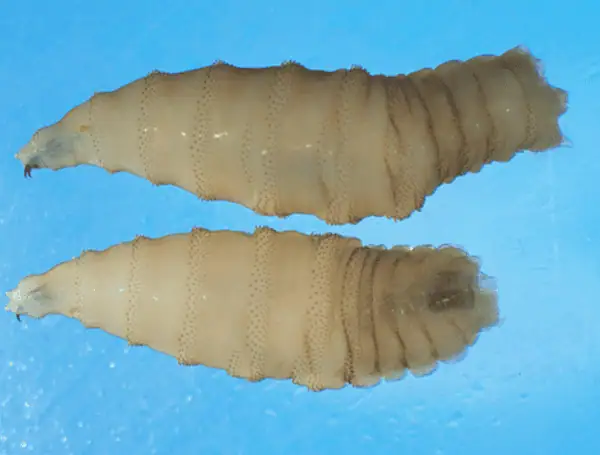Florida agriculture officials are urging heightened vigilance across the state’s animal industries and among pet owners, warning of the increasing threat posed by the potential reintroduction of the New World Screwworm (NWS).
The destructive parasite, eradicated from the United States more than four decades ago, is moving through Mexico, raising concerns it could once again cross the border.
Florida Commissioner of Agriculture Wilton Simpson and the Florida Department of Agriculture and Consumer Services (FDACS) called upon veterinarians, livestock producers, and animal health professionals to remain alert and proactive on Monday.
READ: Florida Rep. Luna, Task Force Demands AG Pam Bondi Release Full Epstein Files By May 16
“This is about protecting American agriculture, plain and simple,” said Commissioner Simpson. “We know how costly and dangerous this pest can be if it takes hold. We’re calling on Florida’s producers, veterinarians, and animal health professionals to remain aware and act quickly if they suspect something unusual.”
The New World Screwworm is a devastating parasite whose larvae infest the wounds of warm-blooded animals, causing severe tissue damage and potentially death if left untreated. Its return would pose a significant threat to Florida’s substantial livestock, wildlife, and domestic animal populations, particularly given the state’s warm climate, which is favorable for the pest.
While there have been no detections of NWS in the U.S. to date, FDACS is working closely with federal and regional partners to monitor the situation as the parasite continues its movement closer to the border.
READ: Homeland Security Secretary Terminates TPS Designation For Afghanistan
Florida State Veterinarian Dr. Michael Short emphasized that early detection is paramount in preventing a widespread issue. “The earlier we catch a potential case, the better chance we have of containing it,” Dr. Short stated. “We’re asking everyone who works with animals – whether in private practice or in the field – to take a second look at any wound that is unusual or doesn’t heal as expected.”
FDACS is actively working to ensure that informational resources are available to assist in identifying the signs of screwworm infestation. These signs typically appear as slow-healing wounds containing larvae. The department stresses that prompt reporting is critical to protecting both animal health and the state’s vital agricultural economy.
READ :“Gravy Train Is Over” Feds Subpoena California Immigrant Program In Major Welfare Fraud Hunt
Although the screwworm currently remains outside U.S. borders, Florida’s agriculture community is keenly aware of the need to stay ahead of the threat. Officials highlight that the continued strength of American agriculture relies on shared responsibility and strong coordination from the local level upwards.
Anyone who suspects the presence of screwworms or has questions or concerns is urged to contact:
- Phone: (850) 410-0900 (during office hours) or 1-800-342-5869 (after hours)
- Email: RAD@FDACS.gov
- Report online at: www.FDACS.gov/RAD
To report sick or injured wildlife, including a suspected screwworm infestation in wildlife, please call the Florida Fish and Wildlife Conservation Commission (FWC) at 1-888-404-FWCC (3922) or email the Wildlife Health Team at WildlifeHealthTeam@MyFWC.com.
Please make a small donation to the Tampa Free Press to help sustain independent journalism. Your contribution enables us to continue delivering high-quality, local, and national news coverage.
Connect with us: Follow the Tampa Free Press on Facebook and Twitter for breaking news and updates.
Sign up: Subscribe to our free newsletter for a curated selection of top stories delivered straight to your inbox.

